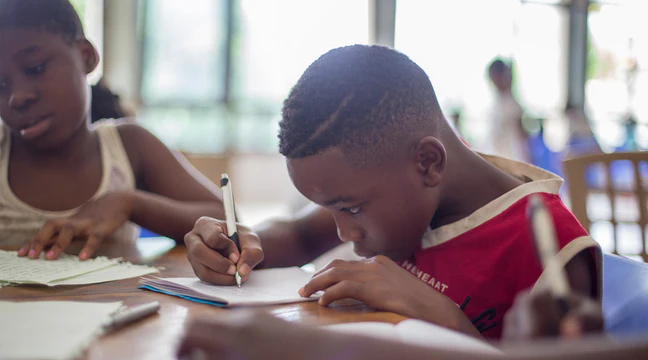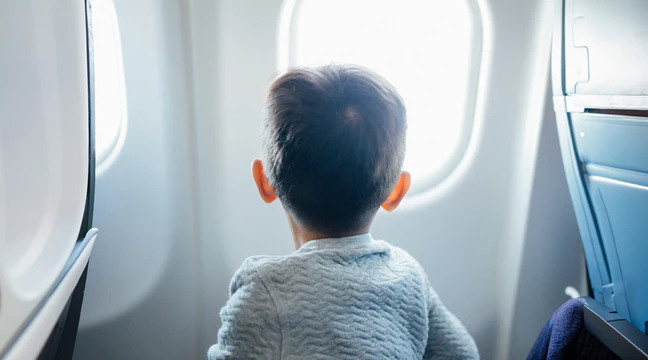Key takeaways
- There are lots of different reasons children might be distracted in the classroom or when studying at home
- There are also lots of ways that parents can help their kids at home
- Most children thrive on routines, so parents can help their children to stay on task by creating and sticking to a daily routine
- Parents can also help to limit distractions in the home with a clear, uncluttered workspace without distractions like smartphones
- Parents should speak to their children and their teachers to help find solutions that work for their child’s specific needs
Some children are more easily distracted than others – and there are lots of different reasons that they might be distracted. They could struggle with visual distractions, or find background noise overwhelming. They may have ADHD, or they could be sleep deprived.
Whatever the reasons behind their limited attention span, there are lots of ways that parents can help their children to avoid distractions during homework and study time.

Set up a distraction-free workspace
Whether it’s a dedicated study room with nothing on the walls or a spot at the kitchen table with music playing in the background, help your child to find a dedicated place in your home that works for them.
Establish a routine
A routine helps most kids to thrive. It’s just a case of working out what routine works best for your child to help them thrive when it comes to studying.
Maybe they need a break between school and homework, or perhaps they thrive when they work in small chunks broken up by physical activity. Work together to find out what suits them, and then put a color-coded calendar up on the wall or on the fridge so they can easily see at a glance what their schedule looks like on any given day.
Break work into manageable chunks
If your child has a big presentation to give or a long essay to write, it might feel overwhelming and they’ll end up procrastinating. Helping them break down big pieces of work into bite size chunks may help them feel that it’s more manageable. And if the chunks are more manageable, they’re less likely to get distracted when doing them.
Take breaks
Much like in the classroom, children will benefit from taking breaks in between periods of studying at home.
Once they’ve worked for a set amount of time depending on their age, get them moving or using their brain in a different way. You could get them to do some jumping jacks, push ups against their desk, or run a quick lap of the garden if they need to be energized. Alternatively, if they need to be calmed down, then you could do a mindfulness exercise, some deep breathing, or some coloring in.
Depending on your child’s age, you might let them choose their brain break and let them do it solo, or you could choose one and do it together. If you (or they) are struggling for ideas, create a pack of cards, each with a different activity outlined on it. Then all you need to do is choose one from the pack, set a timer, and have fun!
The break should help to refocus your child’s mind, helping them to stay on task and more focused for the next chunk of work.
Do one thing at a time
Many adults struggle with multi-tasking, and it’s no different for kids. If they have lots of tasks to do, and try to do everything all at once, it’s likely that they’ll end up overwhelmed and distracted.
Instead, help them to prioritize tasks so that they focus on one thing at a time. Achieving one task can give them a big morale boost, and encourage them to focus on the next task as they feel a sense of accomplishment.
Play games to help homework
Patience and focus are skills that need to be learned. If the only time your child is expected to focus on a task is when they have homework to do, they may struggle. However, if they’re in the habit of doing activities that require attention, they’ll find it easier when it comes to schoolwork.
Try incorporating more games and activities that need focus into your child’s routine. You might want to complete some jigsaw puzzles together, do crosswords, color in intricate pictures, or do craft activities. Your child will learn skills for focusing and problem solving while having fun at the same time!
Prioritize sleep
If your child isn’t getting enough sleep, it could be having a big impact on their attention span. Consider implementing an earlier bedtime for your kids to ensure they get the recommended amount of sleep based on their age.
You may also want to think about a ‘no phones in the bedroom’ rule. Cell phones emit blue light which restricts the amount of melatonin produced by our bodies. Melatonin controls our sleep-wake cycle, so a lack of melatonin can make it harder to sleep, and even harder to wake up the next day.
Without a cell phone in their bedroom, your child won’t be able to scroll before bed, meaning they might get a better night’s sleep. But they’re unlikely to go along with this rule if they see you taking your cell to bed – so you may need to lead by example on this one!
Reinforce positive actions
If your child struggles to focus, it can be difficult for them, and their self esteem may take a hit. Praising them for their efforts to concentrate can help. When you celebrate your child’s wins, it can make them even more willing to try to make changes and keep them motivated.
Talk to your child about the skills needed for studying and learning how to focus, and if they’re feeling upset or frustrated, remind them that things will get better, and there are lots of things they can do to improve their focus.
How to help your easily distracted child
There are lots of different reasons why students might be distracted, from a lack of sleep to ADHD. If you’re a parent, it’s important to understand why your child is losing focus, and help them to figure out how to stop getting distracted.
When parents and teachers work together to communicate about any issues, it’s even better. So, as a parent, don’t be afraid to let your child’s teacher know if you’ve noticed a lack of concentration, or if there are any additional support needs they should know about.
Working together with your child and their teacher can help you all to create a strategy that works for your child, helping them to become more focused at home and at school.

The Top Distractions For Children
Stop children struggling with distractions! Discover the most common distractions children face at home and school.

Study Tips for School Children: Skills and Techniques for Effective Learning
Unlock effective study techniques for children with expert advice. Create a distraction-free study space, design a ...

Top Tips for Flying with Children: Essential Advice for Stress-Free Travel
Discover expert tips for flying with kids and ensure stress-free travel. Get essential advice for a smooth journey here.















